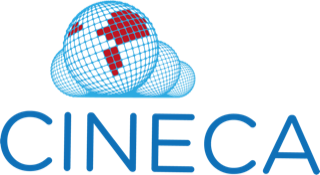Hackathon dates: April 28th-29th, 2021 (12:00 - 16:00 UTC each day)
Location: Online
Organisers: Nicola Mulder (UCT), Vera Matser (EMBL-EBI), Saskia Hiltemann (EMC), Marta Lloret Llinares (EMBL-EBI), Mamana Mbiyavanga (UCT)
Contact: Mamana Mbiyavanga & Marta Lloret Llinares
Overview
CINECA’s vision of a federated cloud enabled infrastructure making population scale genomic and biomolecular data accessible across international borders can only be achieved by building on community standards and adhering to FAIR principles (Findable, Accessible, Interoperable, and Reusable).
The “How FAIR are you” webinar series and hackathon aim at increasing and facilitating the uptake of FAIR approaches into software, training materials and cohort data, to facilitate responsible and ethical data and resource sharing and implementation of federated applications for data analysis.
The hackathon will be a practical online event to investigate gaps in the application of FAIR principles to project outputs and facilitate the implementation of FAIR approaches, where possible. The Hackathon will focus on cohort data, software tools including workflows, algorithms as well as web services, and training materials. The hackathon will be preceded by a “How FAIR are you” webinar series to provide background and introduce theoretical concepts that might be useful during the practical sessions. All participants are encouraged to attend or watch the recordings of the webinar series.
Format of the Hackathon
This hackathon will be an online event and will run over 2 days for 4 hours each day. The participants will be grouped into 3 streams: cohort metadata, software tools and training materials. Each stream will discuss current practices and recommendations for moving towards a practical application of FAIR principles and will explore the FAIRness of participants’ resources using assessment tools. Additional CINECA staff will be on hand for questions.
- Making Cohort data FAIR
- Introduction to FAIR principles - Open science through FAIR health data networks: dream or reality?
- Ethics/ELSI considerations - From FAIR to fair data sharing
- Data stewardship wizard (https://registry.ds-wizard.org)
- FAIR Software tools
- Introduction to FAIR principles - Open science through FAIR health data networks: dream or reality?
- Five recommendations for FAIR software (https://fair-software.eu/)
- Python package to analyze a GitHub or GitLab repository's compliance with the fair-software.eu recommendations (https://github.com/fair-software/howfairis)
AGENDA
|
DAY 1: April 28th, 2021 (12:00 - 16:00 UCT) Introduction and overview, move to breakouts: after some demos on use cases, work in groups to assess specific user resources (training, software or cohort data) for their FAIRness, end with webinar on FAIR in CINECA |
|||
|
12:00 |
Plenary |
Introductions & Aims |
Nicola Mulder (CINECA, UCT) |
|
12:15 |
How to measure FAIR. Experiences within FAIRplus (Recording) |
Jolanda Strubel (FAIRplus, The Hyve) |
|
|
12:45 |
Breakouts |
Cohort data |
Facilitators |
|
Training material |
|||
|
Software tools |
|||
|
13:45 |
Break |
||
|
14:00 |
Breakouts continued |
Work with your own data/resources |
Facilitators |
|
14:30 |
Breakout report backs & discussion |
|
All participants |
|
15:00 |
Webinar |
Application of FAIR Principles in the CINECA project (Recording, Slides) |
Thomas Keane (CINECA, EMBL-EBI) |
|
DAY 2: April 29th, 2021 (12:00 - 16:00 UTC) Breakouts will focus on issues identified on Day 1 and how participants can improve the FAIRness of their resource. There will be group discussions and an opportunity to work on registering resources in FAIRsharing when ready. |
|||
|
12:00 |
Plenary |
Allyson Lister (FAIRsharing, Oxf) |
|
|
12:30 |
Breakouts on next steps |
Cohort data |
Facilitators |
|
Training material |
|||
|
Software tools |
|||
|
13:30 |
Break |
||
|
14:00 |
Breakout report backs |
General issues etc |
Facilitators |
|
14:30 |
Mini talks |
Participants share what they learnt for their resource |
All participants |
|
14:45 |
Talk |
FAIRplus fairification wizard (Recording) |
Fuqi Xu (EMBL-EBI) & Isuru Liyanage (CINECA, EMBL-EBI) |
|
15:15 |
Hands-on work/Discussion |
Registering in FAIRsharing or other resources |
All participants |
|
15:45 |
Discussion & wrap up |
|
All participants |
Hackathon application process
Please fill out the registration form to sign up for this hackathon.
Who is the intended audience for the hackathon?
The hackathon will benefit any researchers interested to learn practical approaches to operationalise the FAIR principles. The event is open to CINECA partners, the EU-Can projects, and the whole scientific community.
Key dates
Hackathon dates: 28-29 April 2021 (12:00 - 16:00 UTC each day)
Registration deadline: 10 April 2021
About CINECA
The CINECA (Common Infrastructure for National Cohorts in Europe, Canada, and Africa) project aims to develop a federated cloud-enabled infrastructure to make population-scale genomic and biomolecular data accessible across international borders, to accelerate research, and improve the health of individuals across continents. CINECA will leverage international investment in human cohort studies from Europe, Canada, and Africa to deliver a paradigm shift of federated research and clinical applications. The CINECA consortium will create one of the largest cross-continental implementations of human genetic and phenotypic data federation and interoperability with a focus on common (complex) disease, one of the world’s most significant health burdens. CINECA has assembled a virtual cohort of 1.4M individuals from population, longitudinal and disease studies. Federated analyses will deliver new scientific knowledge, harmonisation strategies and the necessary ELSI framework supporting data exchange across legal jurisdictions enabling federated analyses in the cloud. CINECA will provide a template to achieve virtual longitudinal and disease-specific cohorts of millions of samples, to advance benefits to patients. It will leverage partner membership of standards and infrastructures like the Global Alliance for Global Health, BBMRI, ELIXIR, and EOSC driving the state of the art in standards development, technical implementation and FAIR data.

